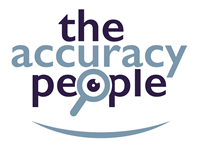
Description
This practical workshop is for people who write, check or send documents and emails as part of their day-to-day work.
Participants typically achieve a 40-60% reduction in errors
The objectives are to:
1. Measurably improve written accuracy
2. Use techniques for ensuring accurate, clear and concise communication
3. Increase ‘present-mindedness’ and attention to detail.
Even small errors which take next to no time to make cause long delays, misunderstandings and operational inefficiencies. There may also be serious compliance or data protection regulation breaches. Think of all the letters, emails, contracts, reports and promotional literature produced by your organisation. Even if a tiny percentage of these written communications contain an error, there is unnecessary cost and damage to your reputation.
This workshop equips people with proven accuracy techniques, so their written communications are presented professionally, accurately and without omissions. This is more than a ‘proof reading’ or ‘grammar’ course. It’s about practising skills and developing a mindset which mean your documents deliver the right message, at the right time and in the right way.
What you will learn
Accurate Written Communication is delivered over two consecutive mornings or afternoons.
In Session 1, participants learn how to be alert to errors and how to prevent them when writing and checking letters and emails. They also learn to use a practical three-stage structured checking technique.
In Session 2, participants learn to apply accuracy techniques to their own work and how to design and use a checklist for printed and electronic documents. They also practise composing concise and clear sentences and how to apply these ideas to a range of written communication.
Session One
• Developing ‘present-mindedness’
• Accurate letters
• The three-stage structured checking technique
• ‘Reading’ for accuracy
• The ABC of emails
• Applying accuracy skills to report writing.
Session Two
• Spotting your typical errors
• Designing practical document checklists
• Accuracy in marketing literature and social media
• Clear, concise and correct sentences.
Benefits
1. Participants learn to apply proven accuracy techniques to their written work
2. Results from pre-workshop and postworkshop assessments indicate the reduction in errors achieved. Typically, groups achieve a
reduction in errors of 40-60%
3. The reductions in error are related to cost savings, productivity gains, and improved reputation, making it possible to calculate a
significant return on investment in the training
4. Participants understand the importance of accuracy and the consequences of error. They address typical errors in their written work.
5. Participants receive post-training resources to keep accuracy front of mind.
This includes access to our online video resources, plus monthly interactive accuracy tests, designed to optimise accuracy back in the workplace.
